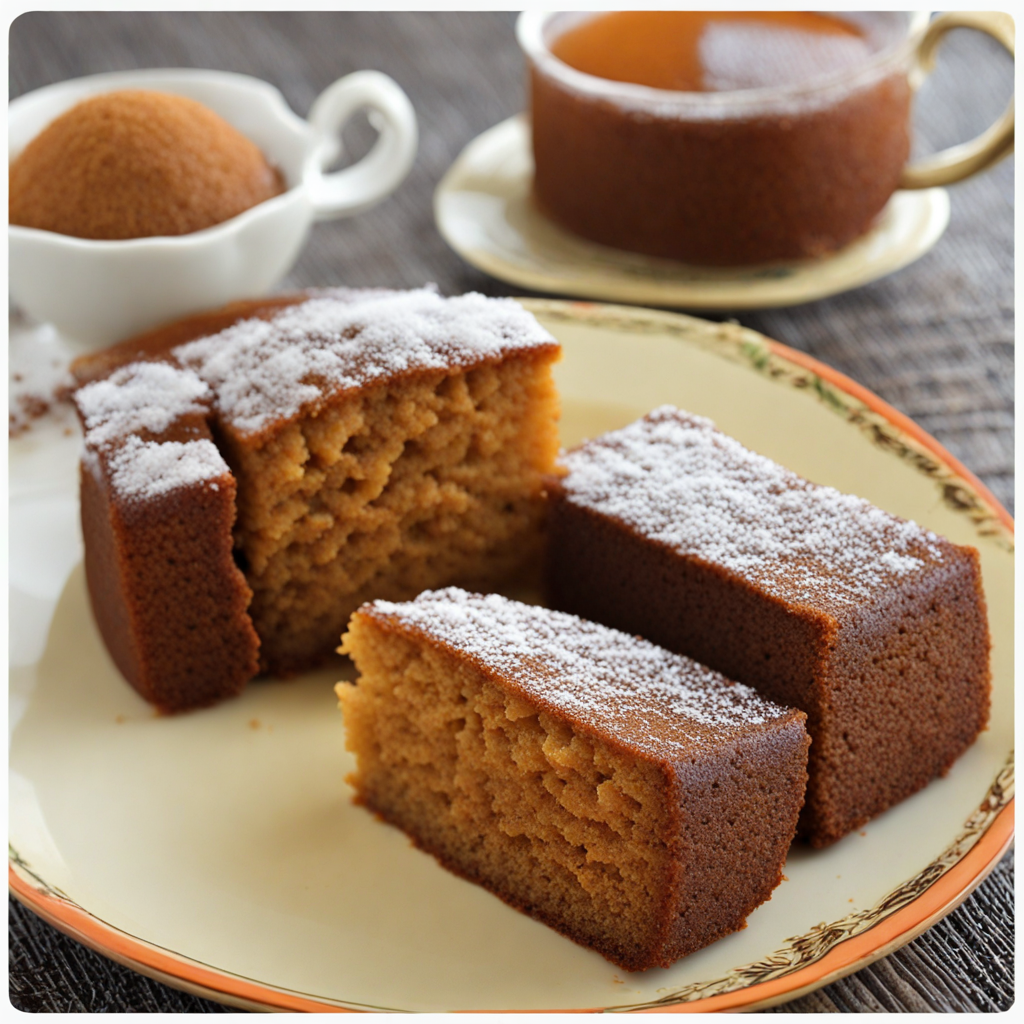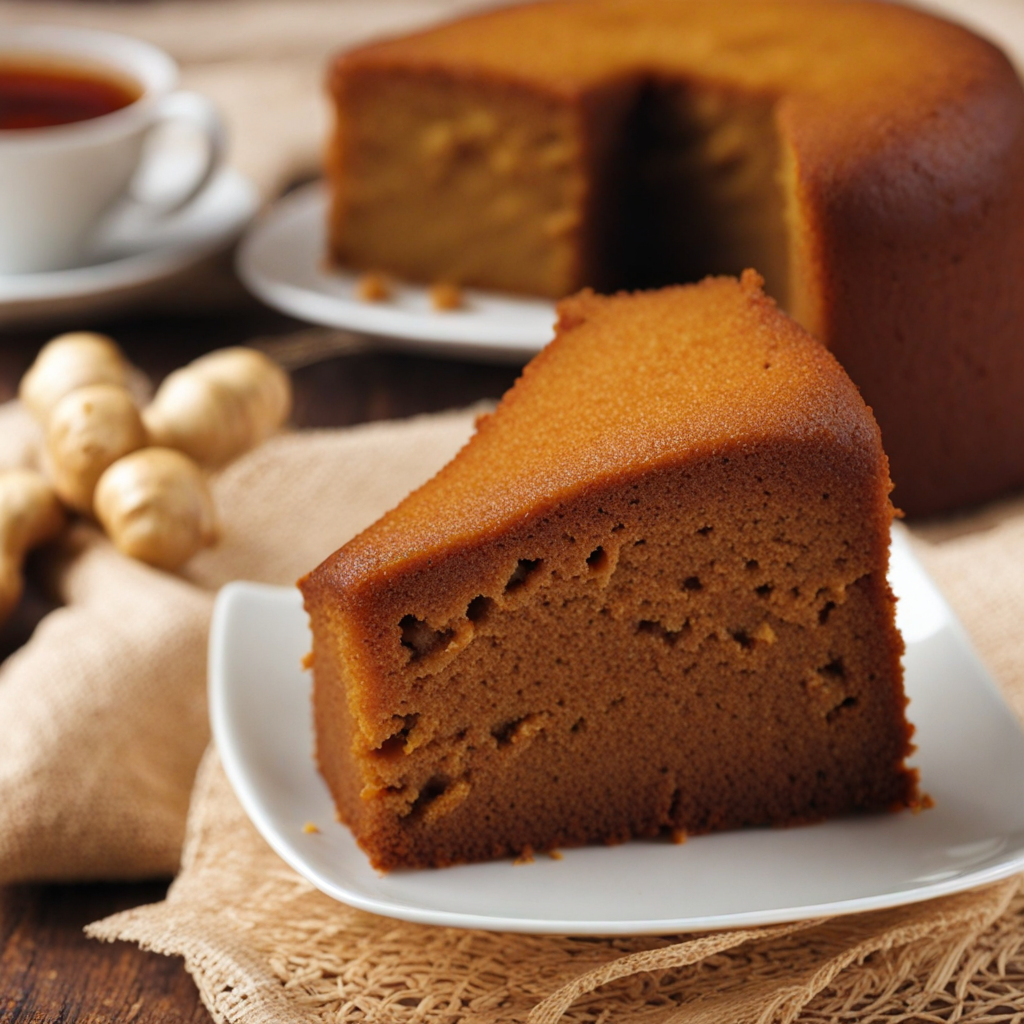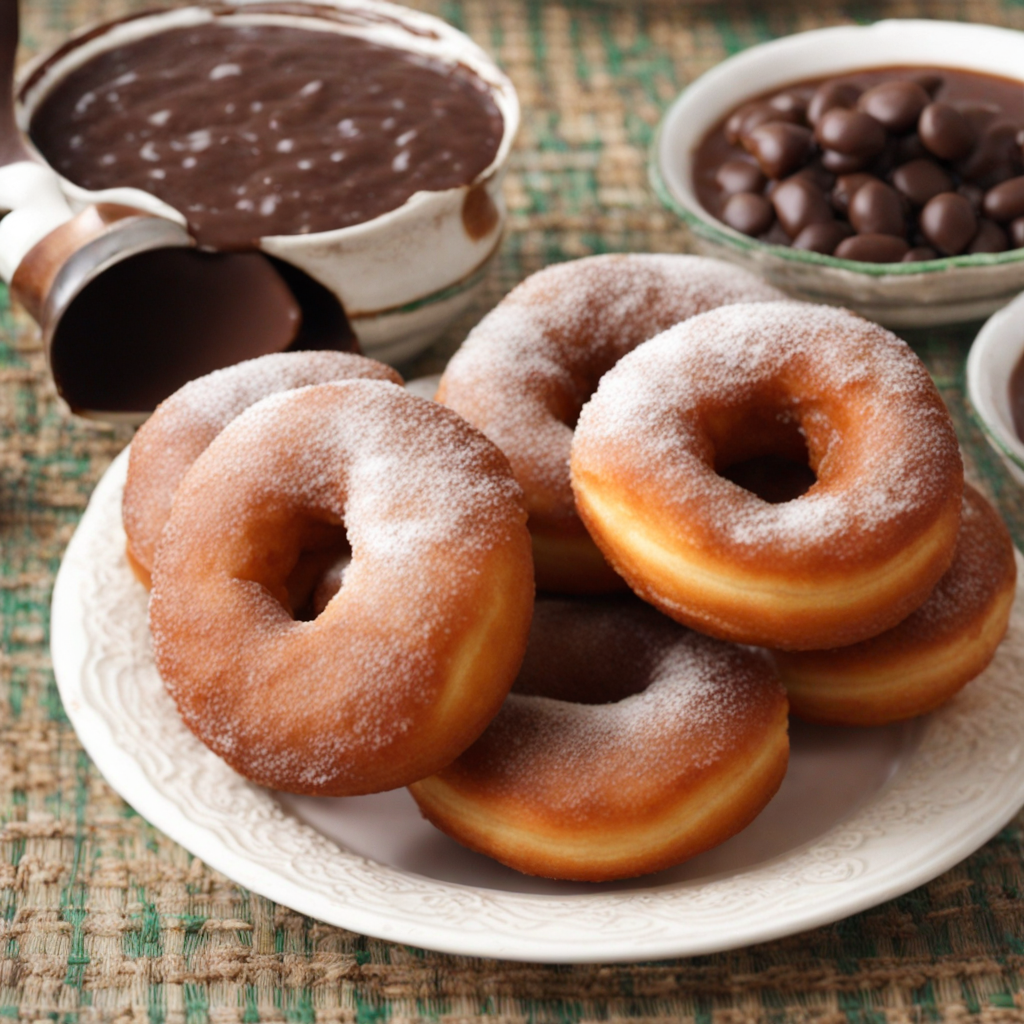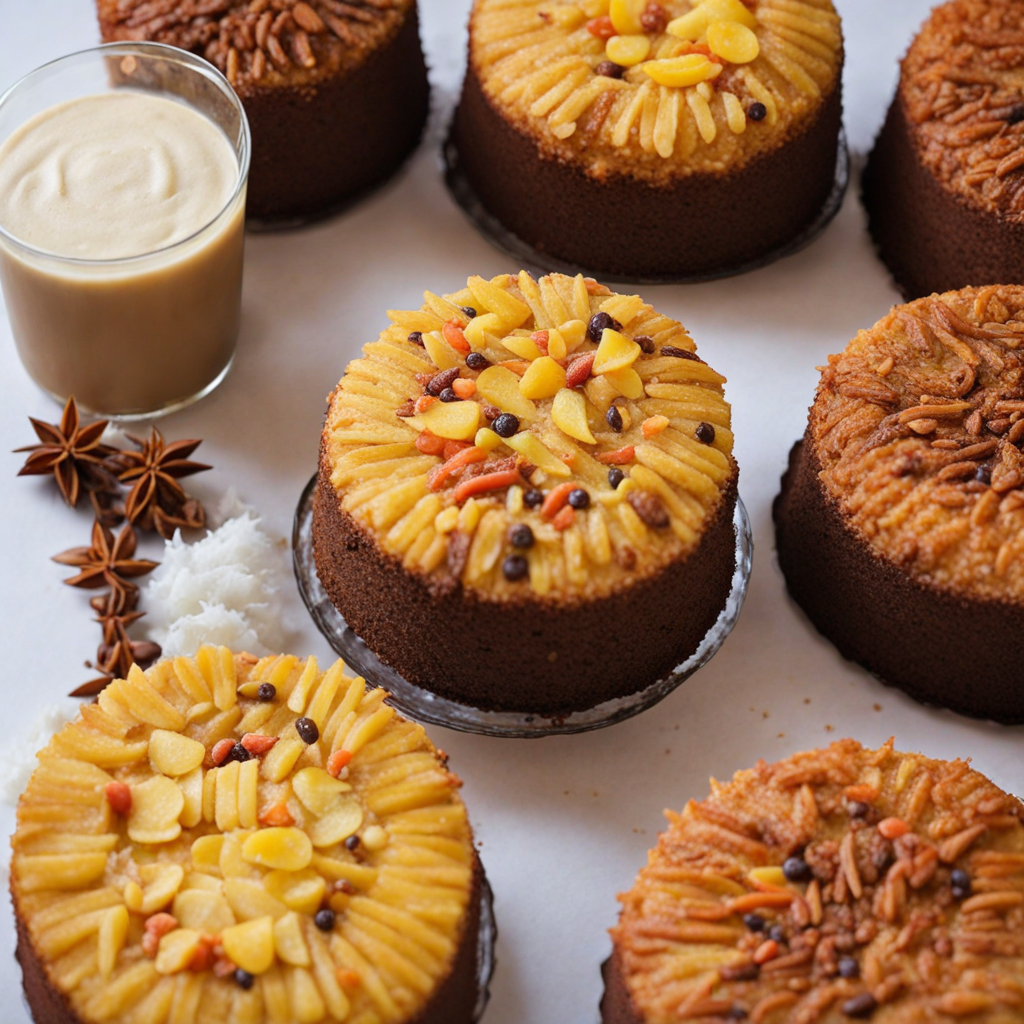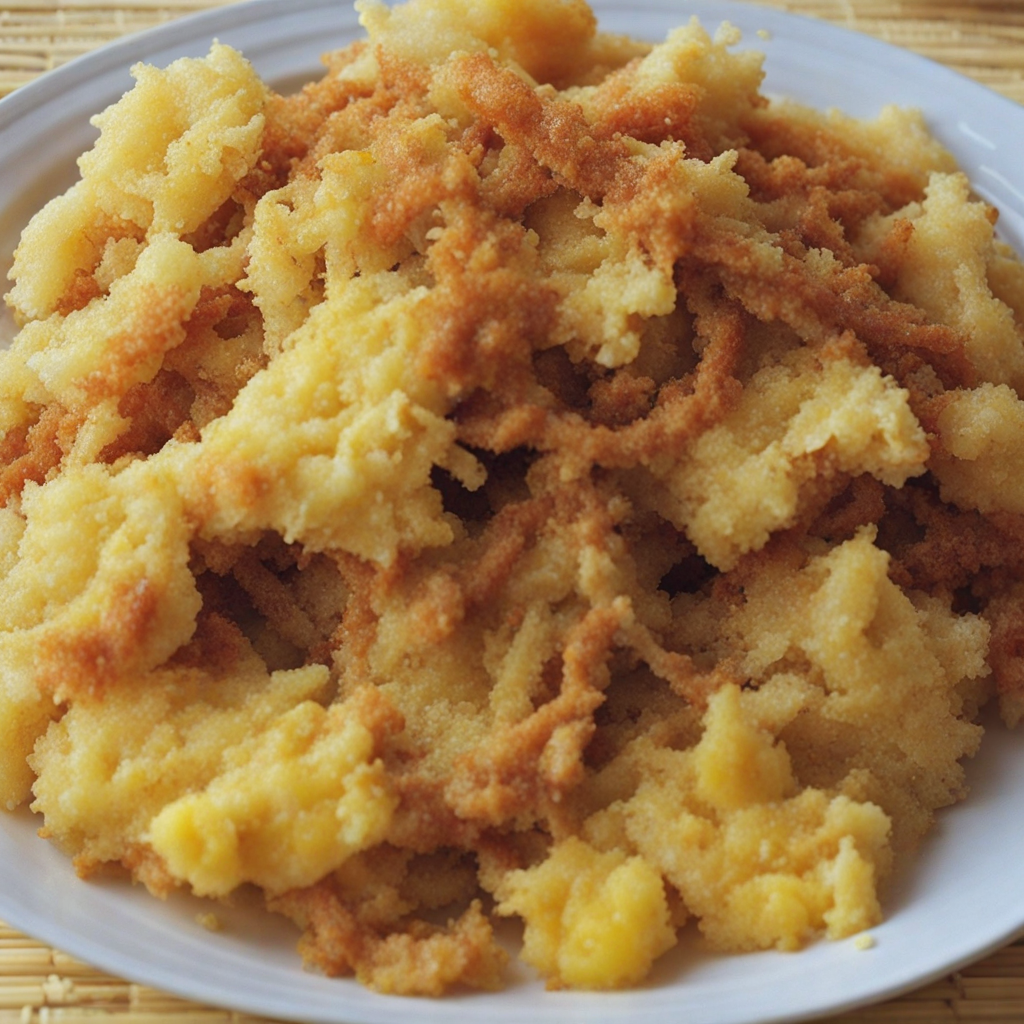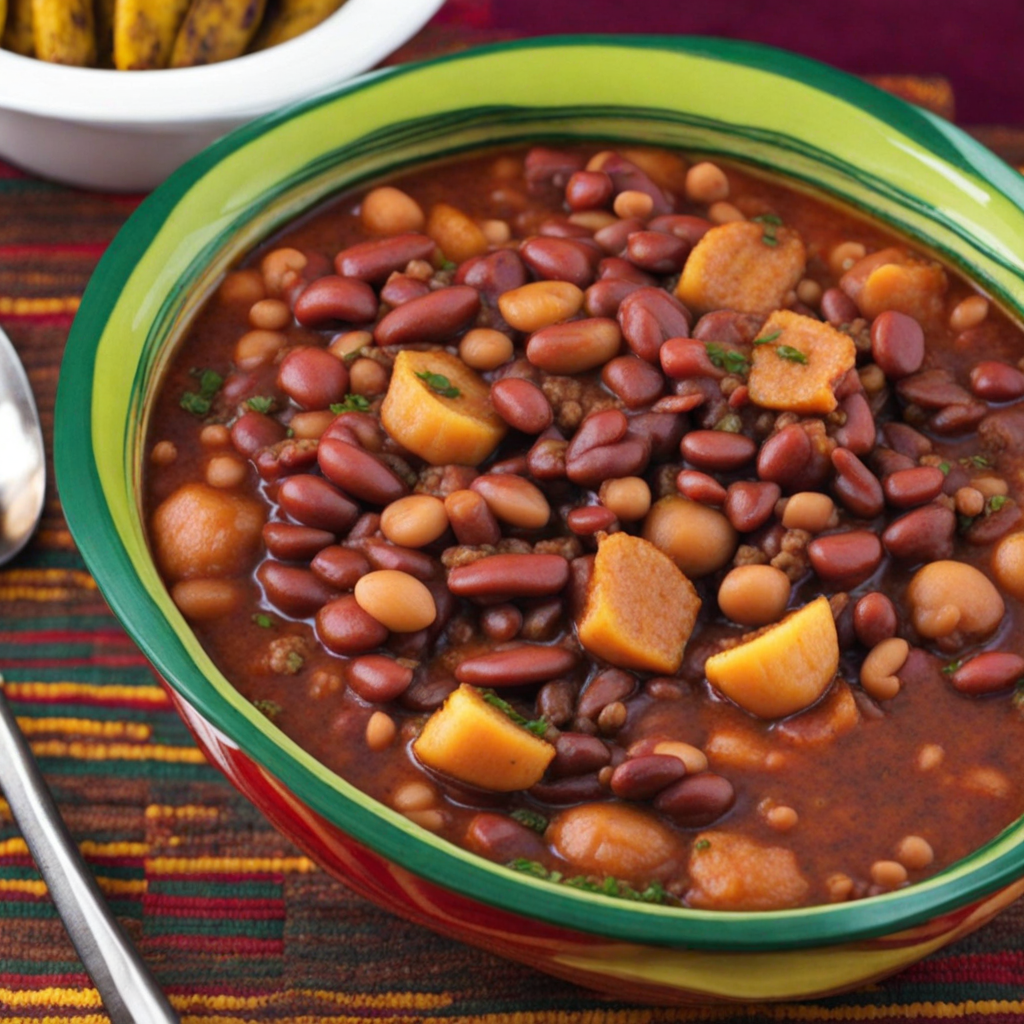Ginger Cake
Ginger Cake, a delightful treat from Ghana, embodies the rich culinary traditions of West Africa, where spices play a pivotal role in flavoring dishes. This cake stands out with its warm, aromatic notes of ginger, which are complemented by a blend of other spices such as nutmeg and cinnamon. The combination creates a beautifully balanced flavor profile that is both invigorating and comforting. The cake's texture is moist and dense, often achieved through the use of local ingredients like ripe bananas or sweet potatoes, which add a unique depth and richness to each bite. In Ghana, Ginger Cake is not just a dessert; it serves as a symbol of hospitality and celebration. It is commonly enjoyed during festive occasions, family gatherings, and even as an everyday snack with a cup of tea or coffee. The cake is typically topped with a glaze or icing made from sugar and ginger, enhancing its sweetness while maintaining the spicy undertones that make it so distinctive. Each slice reveals a golden-brown crust, inviting you to indulge in its delightful flavors. The experience of savoring Ginger Cake is both nostalgic and exhilarating, as it connects you to the vibrant culture of Ghana. The warmth from the ginger stimulates the senses, making it a wonderful choice for both seasoned spice lovers and those new to the flavor. Whether enjoyed freshly baked or as part of a dessert platter, Ginger Cake promises to transport your taste buds on a journey through the heart of Ghanaian cuisine.
How It Became This Dish
The History of Ginger Cake in Ghana Ginger cake, known for its moist texture and warm, spicy flavor, is a beloved treat that has deep roots in culinary traditions around the world. In Ghana, this cake is not merely a dessert; it embodies a rich tapestry of history, culture, and local ingredients. Its journey through time reflects the evolution of Ghanaian gastronomy and the interplay of indigenous practices and external influences. #### Origins The origins of ginger cake in Ghana can be traced back to the country's historical interactions with various cultures and their culinary practices. Ghana, located on the West African coast, has a diverse array of ethnic groups, each contributing to the nation's food culture. The Akan people, one of the largest ethnic groups in Ghana, were among the first to incorporate ginger into their cooking. Ginger, a spice that has been used for millennia for its flavor and medicinal properties, was cultivated and appreciated in various forms long before the arrival of European colonizers. The use of ginger in Ghanaian cuisine can be linked to its cultivation along the coastal regions, where the warm and humid climate provides ideal growing conditions. It was commonly used in traditional dishes, herbal remedies, and even in rituals, symbolizing health and vitality. The introduction of baking techniques during the colonial era, particularly from the British, saw the integration of ginger into cakes, giving rise to the ginger cake we know today. #### Cultural Significance Ginger cake holds a special place in Ghanaian culture. It is often associated with celebrations and communal gatherings, symbolizing hospitality and generosity. During festive occasions such as weddings, birthdays, and religious ceremonies, ginger cake is served alongside other traditional dishes, showcasing the blending of local and foreign culinary influences. In Ghana, food is a vital part of social life, and the act of sharing meals fosters community bonds. Ginger cake, with its aromatic and comforting qualities, serves as a sweet treat that brings people together. It is not uncommon for families to prepare ginger cake during holidays or special events, passing down recipes through generations and ensuring that the flavors and stories of their heritage are preserved. The cake's significance extends beyond mere sustenance; it is often imbued with symbolism. The spicy notes of ginger represent warmth and zest for life, while the act of baking itself is an expression of love and care. Families often gather to bake together, turning the preparation of ginger cake into a cherished family activity that strengthens bonds and creates lasting memories. #### Development Over Time As Ghanaian society evolved, so did the recipe and preparation of ginger cake. The integration of Western baking practices during the colonial era introduced new techniques and ingredients, such as refined flour, sugar, and baking powder. These changes allowed for the development of a lighter, fluffier cake than what might have been traditionally made with coarser, local flours. In the 20th century, as Ghana gained independence in 1957, there was a resurgence in the celebration of local ingredients and culinary traditions. This movement prompted a reevaluation of traditional recipes, including ginger cake. Bakers began to experiment with variations, incorporating local flavors and ingredients, such as the addition of honey, palm oil, or even local fruits like bananas and mangoes. These adaptations not only enhanced the flavor profile but also made the cake a more authentically Ghanaian creation. The rise of globalization and the internet in the late 20th and early 21st centuries further influenced the way ginger cake was perceived and made. Exposure to international baking trends led to the emergence of gourmet versions of ginger cake, often featuring unique twists such as chocolate, nuts, or glazes. This fusion approach has allowed chefs and home bakers alike to reimagine ginger cake, blending traditional flavors with contemporary culinary techniques. #### The Modern Era Today, ginger cake continues to thrive in Ghana, both in homes and in the burgeoning baking industry. Artisan bakeries and cafes in urban centers like Accra are embracing traditional recipes while also innovating new variations. Local ingredients such as ginger, nutmeg, and cloves are celebrated for their flavors and health benefits, appealing to a modern audience that values both taste and wellness. The resurgence of interest in traditional foods has also led to a renewed focus on the nutritional aspects of ginger cake. Ginger is known for its anti-inflammatory and digestive properties, making it a popular choice among health-conscious consumers. Many bakers now emphasize the use of natural sweeteners and organic ingredients, appealing to a growing market that seeks healthier alternatives to commercial baked goods. Moreover, ginger cake has found its way into the global culinary scene. Ghanaian diaspora communities around the world celebrate their heritage through food, and ginger cake has become a symbol of home for many. It is often shared at community events, cultural festivals, and family gatherings, serving as a delicious reminder of their roots. #### Conclusion The history of ginger cake in Ghana is a fascinating reflection of the country's rich culinary heritage. From its origins in indigenous practices to its evolution through colonial influence and its contemporary resurgence, ginger cake has transformed into a beloved symbol of community, celebration, and cultural identity. As it continues to adapt and thrive in modern kitchens, ginger cake remains a testament to the enduring power of food to connect people across generations and borders. Today, whether enjoyed as a traditional recipe or a modern twist, ginger cake serves not only as a delicious dessert but also as a flavorful reminder of Ghana's diverse and vibrant culinary landscape.
You may like
Discover local flavors from Ghana


